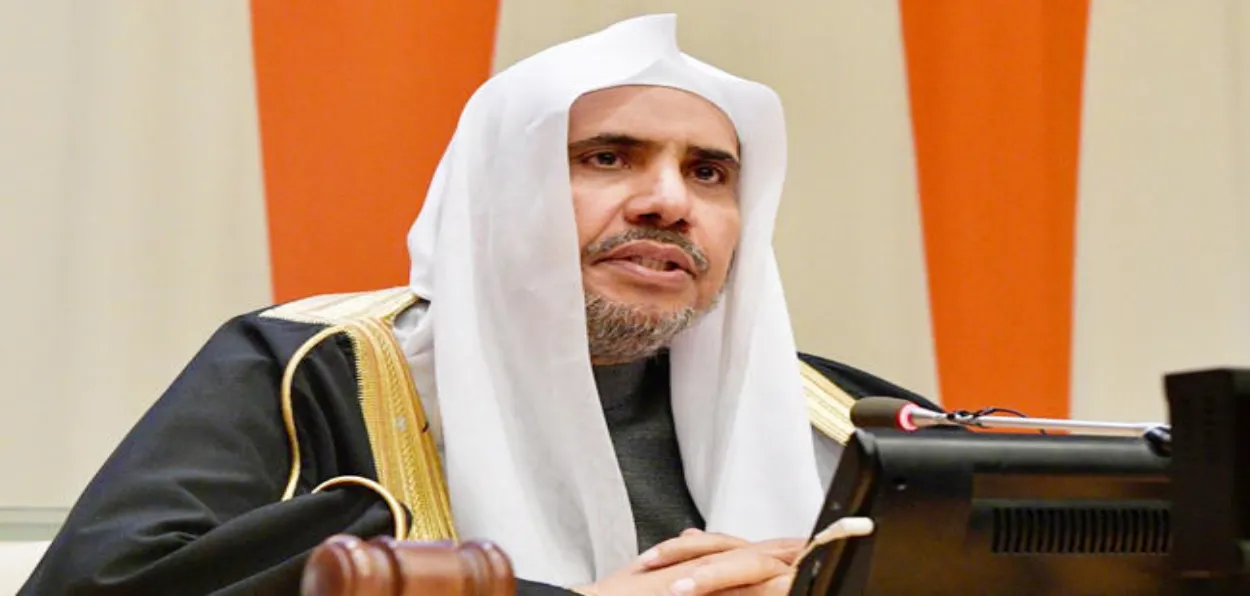
New Delhi
Dr. Mohammed bin Abdul Karim Al-Issa, secretary-general of the Makkah-based Muslim World League (MWL), who embarks on his maiden six-day journey to India on Monday, believes that religious leaders have a responsibility towards society. This includes “countering hate speech and all theories of religious or ethnic extremism that lead to violence or terrorism.”
Delivering his opening remarks at the Responsible Leaders Summit at the UN in New York in May 2019, Dr. Issa said that religious leaders have to combat violence and terrorism while strengthening the intellectual immunity of all, especially young people, through their spiritual influence.”
His speeches at the conference which saw leaders from all walks of life from different countries gather for brainstorming were widely reported by the Saudi media. Arab News quoted him saying that “extreme religious and terrorist ideologies are not established by military force, but by religious people who choose to adopt radical ideologies.”
Dr. Mohammed bin Abdul Karim Al-Issa is arriving for his maiden visit to India today, Apart from his scheduled meetings with external Affairs Minister Dr S Jaishankar and Minority Affairs minister Smriti Irani, he will meet NSA Ajit Doval for a closed door meeting. He will also deliver speech to an assembly of intellectuals and academicians hosted by the Khusro Foundation on July 11.
Dr Issa made the inaugural as well as closing remarks at the conference where many religious leaders including Bawa Jain, Secretary-General of the World Council of Religious Leaders, were present.
According to Arab media, Dr. Al-Issa spoke about the vital role that responsible leaders can play in facing the many challenges of the modern world.
One of his oft-cited quotes from his speech at the Conference is: “We say there is no such thing as a radical religion, but there is also no religion that does not have some extremist followers.”
Respect for other religions and their followers, he said, is vital for peaceful coexistence. The efforts of certain isolated religious and sectarian groups to impose their ideals on others, and reject the rights of others to exist, have led to exclusion, hatred, and hostility, he added.
“Such negative ideas have created extremism of all kinds, including the (rise of the) extreme right in some countries,” Al-Issa said. Every case of extremism, political, religious, or intellectual, is a threat to world peace.
The Saudi leader said, “Evil grows with time, through its effects on unconscious emotions. All stable people are aware that extremist rhetoric has a painful end. They also realize that its quick gains are deceptive. (It is) a seed of evil that will backfire.”
“Evil only expands in the absence of good, injustice in the absence of justice, ignorance in the absence of knowledge, and negative opportunism at the expense of public interests in the absence of values with effective laws,”
Dr Issa told the global leaders, “The fence of our human harmony can only be breached when it is unguarded.”
He said,“It is important for leaders to inspire others and provide them with positive energy,” he said. “
“No matter what the differences in our culture or religion may be, we all agree on the key humanitarian norms that constitute the framework of our natural law. Even 10 percent of this common ground is enough to bring about global harmony and peace.”
He told the global meet, Al-Issa noted that education is one of the main drivers of a sustainable, peaceful future, stressing that “preparing teachers is the main point of focus.”
ALSO READ: Dr. Muhammad bin AbdulKarim Al-Issa's walks the talk on unity of humans
In the conference he went on to list several attributes central to responsible leadership, including strength and integrity; a knowledge of history and a willingness to learn from it; being proactive and constantly monitoring performance. He said that the leaders must recognise that the most important pillar of (one’s) nation’s peace is world peace.
